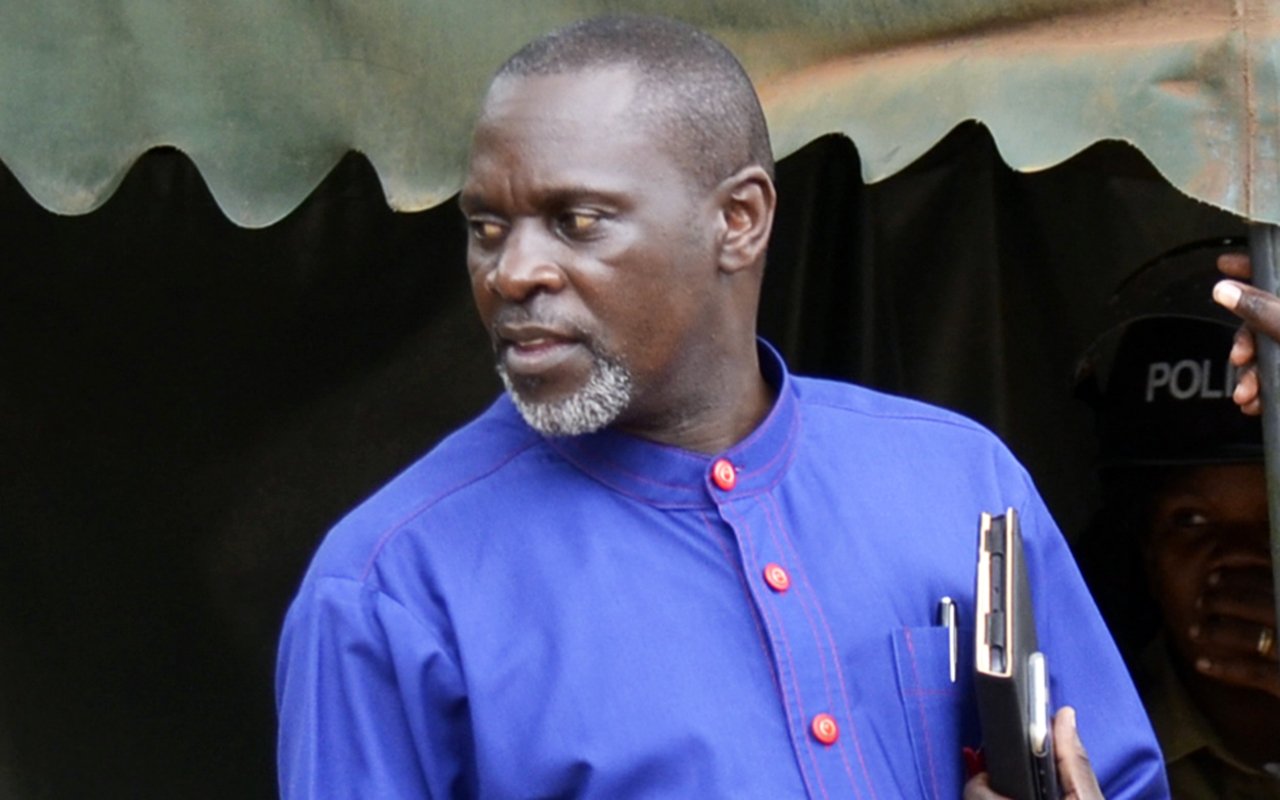Brewery offer ready market for cassava farmers

Mr Ambrose Agona (right) signs the MoU that will see them breed cassava for brewery. PHOTO/LOMINDA AFEDRARU
What you need to know:
- The new varieties will yield between five and six tonnes per hectare. With good agronomy and quality cassava seedlings, this can yield up to 50 tonnes per hectare.
Agricultural scientists from the National Agricultural Research Organisation (Naro) are set to begin joint research with experts from Nile Breweries Limited (NBL) in cassava breeding with attributes for brewing beer.
This is in a bid to promote use of local raw materials bred by Ugandan scientists in the beer brewing industry as well as increase income for farmers engaged in growing cassava.
MoU
The two entities formalised this in a joint five-year memorandum of understanding which they signed at the National Agricultural Crops Resources Research Institute (NaCRRI) last week.
The Director of NaCRRI, Dr Godfrey Asea in his opening remarks noted that NBL does a lot of work with farmers on ground ranging from growing crops such as barley and sorghum among others and this time cassava.
“Naro’s research work is based on market and demand by the stakeholders, cassava inclusive which has become not only food security crop but an industrial crops for brewing beer. It has become an income earning crop for the farmers and with coming on board of the breweries industries, farmers will earn more,” he said.
Breeding
Explaining the modalities of the initiative, the Director General of Naro Dr Ambrose Agona noted that sorghum has been a priority crop for breweries industries but Naro is bringing on board cassava. The objective of Naro is looking at bio economy and this means developing as many raw materials as possible to support the industries and this can be possible through application of science technology and innovations.
He explained that there are a number of cassava varieties that have been bred and released by scientists in Naro.
Varieties
However, for purposes of this agreement, the scientists have been breeding three varieties namely Ug120156, Ug120193 and Mknumba, which are not yet released for use by farmers.
According to Dr Agona, Naro will test and evaluate these cassava varieties in various agro ecological locations including the districts of Gulu, Lira and Kamuli, among others. The major attribute is high quality starch, which is good for brewing.
“The previous cassava varieties released had major attributes which are good for food but we need to customise it for various needs and this involves quality characteristics for brewing quality beer. It is the reason why this time the scientists are taking into account the attributes for brewing as well as the yield rate and NBL team will advise accordingly,” he said.
Giving the statistics Dr Agona notes that apparently farmers are able to get yield of between five and six tonnes per hectare yet with good agronomy and quality cassava seedlings, this can yield up to 50 tonnes per hectare.
After the evaluation of these varieties, the team will identify farmer associations with whom they will work to distribute cassava stalk for farmers to grow the plant to meet the breweries demand.
The recommended starch content for brewing he says is 32 per cent and the scientists intend to hit this target.
NBL cassava uptake
The NBL Agricultural Service Manager, Theunis Coetzee noted that the industry brews mainly using barley, sorghum and some reasonable quantity of cassava which needs to be expanded.
Brewing with cassava he explained is to reduce the sugar in beer which is healthy. According to him, NBL has been using cassava for brewing in small quantities of about 400 tonnes of cassava chips in Nile Special, Club Pilsner and Eagle Lager and now the team is increasing its volume to 4,200 tonnes.
Usually, the team purchases cassava chips which can last two months as they keep brewing. In this agreement, NBL team will focus on organising farmer groups and skilling them in embracing best agronomy practices including post-harvest handling to produce the required yield and quality cassava starch ready for uptake.
The skills guide will be done through radio talk shows and sms messages directly to their phones.
NBL’s target is get the process of breeding the three cassava varieties done so that the distribution team will distribute quality cassava cuttings to the farmers to start quality cassava production for the industry.




